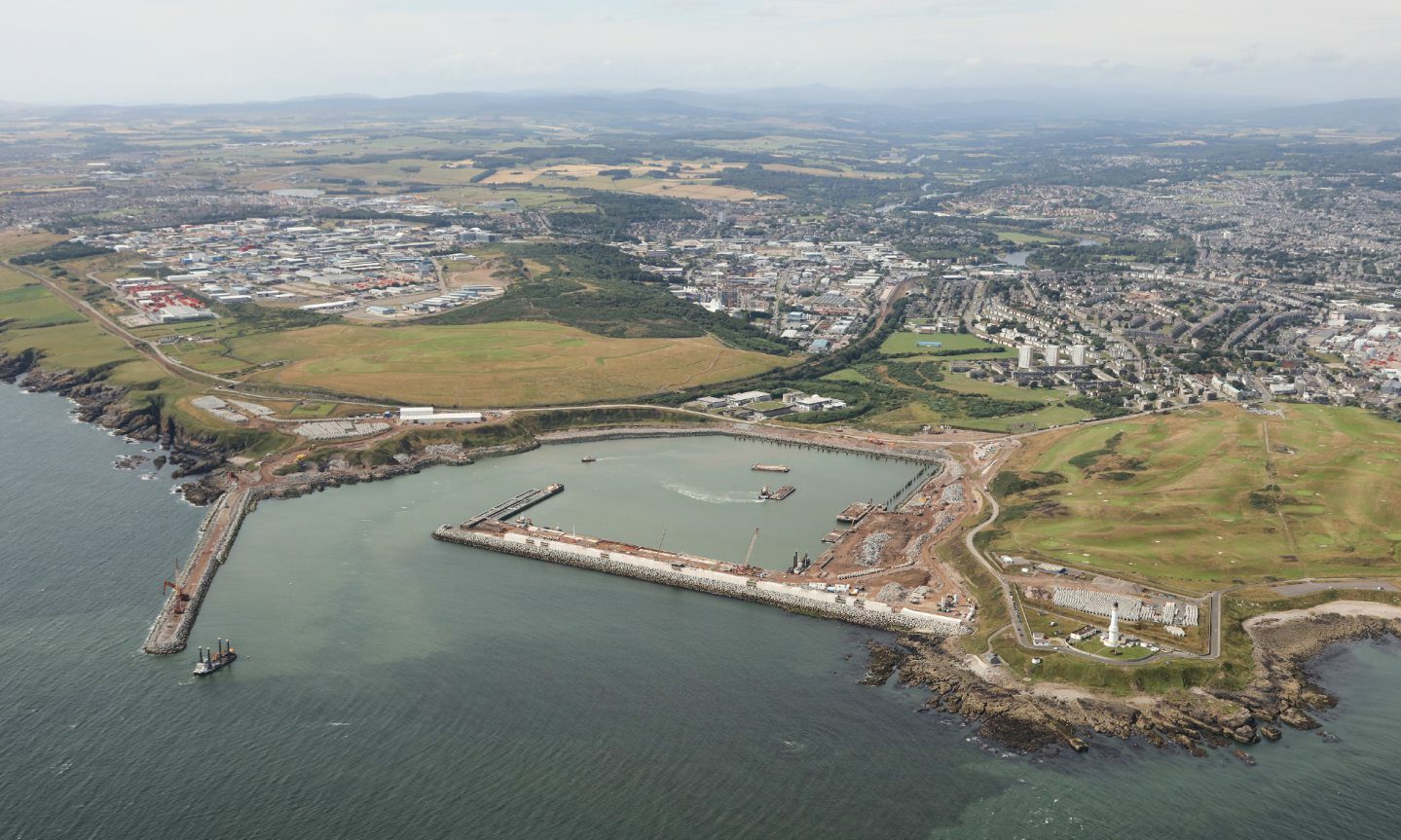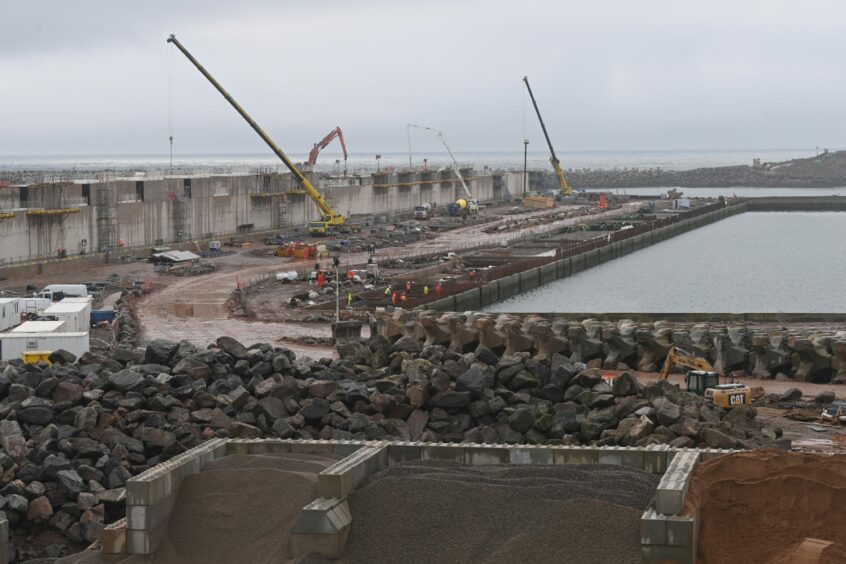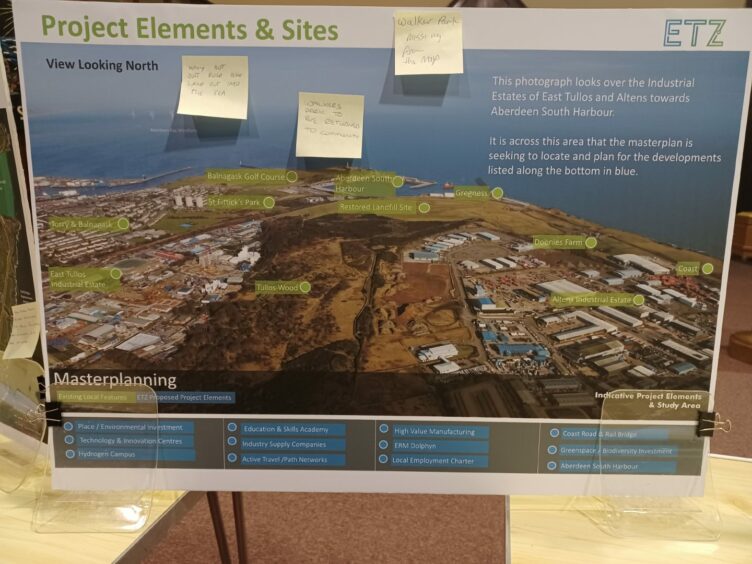All of us who live in north-east of Scotland are acutely aware how reliant our economy has been on a world-class oil and gas sector.
For almost 50 years the region has made a massive contribution to the UK’s economic productivity and energy requirements and, in doing so, has sustained thousands of jobs in and across Aberdeen and Aberdeenshire.
The industry is now maturing, and, in the context of an unprecedented climate emergency, there are widespread calls from government and industry for energy transition activities to be accelerated.
Energy transition challenge is ‘stark’
It is sobering to reflect that the UK oil and gas industry lost around 35,000 direct and indirect jobs last year, many of which were across the north-east, so the scale of challenge is stark.
We want to harness the skills and experience of those 50 years and put it towards a world leading hub for renewables energies – offshore wind, green and blue hydrogen, carbon capture and storage – creating a long term and sustainable industry base that allows the north-east to re-position itself as the net zero energy capital of Europe.
This is exactly what ETZ Ltd, the not-for-profit organisation I’m privileged to lead, has been established to do.
We operate on the basis of no commercial gain and with one over-riding goal; to protect and create as many jobs as possible ensuring a sustainable and vibrant future for the north-east and the people who live and work here.
The Energy Transition Zone is a vital project that will allow Aberdeen and the north-east to achieve this ambition.
We must not lose out
The reality is, however, we face stiff competition from ports around the UK and rest of Europe who are trying to emulate our plans but I’m very clear that we cannot and must not let Aberdeen lose out on this.
If we were to, we should truly fear for the future of the city and region.
We are progressing at pace to ensure this doesn’t happen and work is already underway to repurpose and refurbish key locations within the existing industrial sites of East Tullos and Altens which will be at the heart of the thriving cluster within the Energy Transition Zone.
Critical to the zone’s success will be our ability to attract specialist high-value manufacturing to support the massive upcoming offshore wind developments shortly to be announced by the Scottish Government, 60% of which are within 100 miles of Aberdeen.
Quayside access ‘crucial’
This means having direct access to the new £350 million deep-water Aberdeen South Harbour which is a crucial requirement of potential investors who need proximity to the quayside given the essential considerations associated with transporting components and materials from onshore to offshore and vice versa.
Direct port access is crucial to enabling investment and jobs in the wider zone and it will, subject to planning permission, require the utilisation of some of the land at St Fittick’s Park
Direct port access is crucial to enabling investment and jobs in the wider zone and it will, subject to planning permission, require the utilisation of some of the land at St Fittick’s Park which was earmarked by Aberdeen City Council for potential energy transition use in its proposed Local Development Plan last year.
We have embarked upon an extensive programme of engagement and dialogue with the local community and other stakeholders through a dedicated masterplan exercise covering the entire Energy Transition Zone project.
This process, which reflects Scottish Government best practice, is in its early stages but is designed to ensure the views and concerns of the local community and other stakeholders are considered as part of the emerging proposals.
The first of the ‘meet the master planners’ workshops on 4 December at Torry United Free Church was very well attended by local members of the community and we are grateful for everyone’s participation.
Local community sentiment is strong
We recognise the strength of sentiment and how important accessible green public space and biodiverse areas are for the people of Torry, particularly the walkways, wetlands and habitats at St Fittick’s Park.
We are listening carefully to these concerns and are very confident that less than a third of St Fittick’s Park will be required for development as part of the Energy Transition Zone project.
We are very confident that less than a third of St Fittick’s Park will be required for development as part of the Energy Transition Zone project.
The exact area requirements will be confirmed through the master planning process with a final report made public in 2022.
It is important to note that our only focus on the wider greenspace and playing fields, out with the project, is to consider how we can work with local residents, as part of the masterplan, to consider enhancements to recreational facilities, and support community initiatives.
Overcoming economic and social challenges
We recognise there are longstanding economic and social challenges faced by many in the area and we want to ensure there are tangible local benefits associated with the project that seeks to reverse this trend.
That is why we are creating an Energy Skills Academy Hub that will unlock quality job opportunities across the Torry community and we are in discussions to deliver an all-energy apprenticeship prioritising young people living in the Torry and Cove areas.
We are determined to ensure benefits of the ETZ project are widespread and felt keenly amongst those who live and work in close proximity to the proposed Energy Transition Zone.




